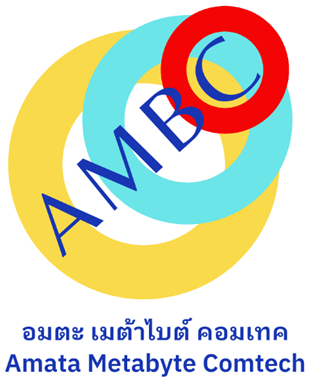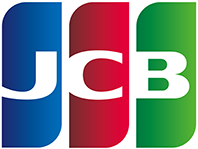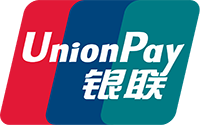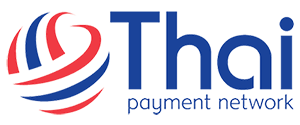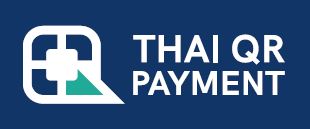Revenue Management Tactics for High Inflation and Market Volatility in the Hotel Industry
Bangkok: Friday 22 November 2024

Economic uncertainty, driven by high inflation and market volatility, has transformed the landscape of the hotel industry. Travellers’ spending habits are shifting, and revenue managers face an uphill battle to maintain profitability while adapting to fluctuating demand. This article explores innovative strategies, supported by data, for revenue management professionals to thrive in these turbulent times.
Understanding the Impact of Inflation and Volatility
Inflation significantly increases operational costs, from utilities to staff wages, while market volatility affects consumer confidence. Deloitte reports that global inflation rates averaged 8.8% in 2022, with travel and hospitality among the hardest-hit sectors. According to the World Travel & Tourism Council (WTTC), these economic factors caused a 15% dip in discretionary leisure travel in early 2023, challenging hoteliers to reimagine pricing models.
1. Dynamic Pricing Models: Adapting to Demand Fluctuations
The Traditional Approach vs. Modern Tools
Static pricing models no longer suffice. By leveraging AI-powered revenue management systems (RMS), hotels can adjust rates in real time based on demand signals, competitor actions, and consumer sentiment.
Case Study: Marriott International
Marriott employed a dynamic pricing model during the post-pandemic travel surge. Their AI-driven platform analysed 200+ factors, allowing the group to achieve an 11.7% RevPAR increase in 2022 (Statista, 2023).
Implementation Tips
- Use granular segmentation: Tailor rates for niche demographics like solo travellers, digital nomads, or staycationers.
- Apply predictive analytics: Forecast demand surges for peak travel seasons or local events.
- Experiment with dynamic discounts: Offer time-sensitive deals that optimize booking lead times.
2. Emphasizing Value-Added Services
In an era of cost-conscious travellers, value matters more than ever. Hotels can differentiate by bundling services or creating unique packages.
Examples of Value-Added Services
- Wellness Packages: Include spa treatments or fitness classes.
- Workcation Deals: Offer high-speed internet, co-working spaces, and business amenities.
- Experiential Travel: Highlight unique local tours or cultural events.
Data Insight
A survey by Amadeus (2023) found that 63% of travellers were willing to spend more on packages that enhanced their overall experience.
Strategy in Action: Accor Hotels
Accor launched "ALL – Accor Live Limitless," bundling loyalty perks like dining discounts and exclusive event access. This approach boosted customer retention by 23% year-on-year.
3. Leveraging Real-Time Data Analytics
Real-time analytics can help revenue managers make informed decisions quickly. By tracking booking trends, consumer behaviour, and market conditions, hotels can respond dynamically to external changes.
Key Metrics to Monitor
- Booking windows: Shortened lead times may signal economic caution.
- Demand elasticity: Determine how price changes affect booking volume.
- Competitor rates: Use rate shopping tools to stay competitive.
Example: Hilton Worldwide
Hilton uses a proprietary RMS that processes billions of data points daily. This system enabled them to achieve a record-breaking 15% year-on-year growth in revenue per available room (RevPAR) in Q1 2023.
4. Upselling and Cross-Selling Strategies
Upselling and cross-selling offer low-cost ways to increase revenue per booking. According to Skift Research, hotels that implemented structured upselling programs in 2023 saw an average 20% uplift in ancillary revenue.
Tactics to Consider
- Upgrade Incentives: Offer discounted room upgrades during check-in.
- Dining Offers: Promote pre-purchased meal plans.
- Event Bundles: Provide discounted tickets to local attractions.
Real-World Success: Citizen M Hotels
Citizen M implemented a pre-arrival upsell system that drove a 28% increase in ancillary revenue in 2022.
5. Targeting New Market Segments
Expanding market focus can buffer against shrinking demand from traditional customer bases.
Emerging Segments
- Bleisure Travelers: Professionals blending business and leisure trips.
- Domestic Tourists: Travelers choosing local destinations due to economic concerns.
- Eco-Conscious Guests: Those prioritizing sustainable stays.
Stat: Domestic Tourism Growth
The United Nations World Tourism Organization (UNWTO) reported a 22% increase in domestic travel in 2023, underscoring its potential.
6. Automation and AI for Efficiency
Automation reduces human error and ensures consistent pricing strategies. By incorporating AI-driven RMS, hotels can not only predict trends but also automate repetitive tasks like inventory management.
Case Study: IHG Hotels
InterContinental Hotels Group introduced an AI system in 2023 that reduced manual workload by 30% and improved rate accuracy, leading to a 5% revenue uplift.
7. Fostering Guest Loyalty Amid Inflation
Loyalty programs provide consistent revenue streams and enhance brand trust. With inflation eating into disposable incomes, guests are likelier to return to brands that offer perceived value.
Innovative Loyalty Perks
- Tiered Benefits: Exclusive deals for frequent guests.
- Personalization: Tailored rewards based on past preferences.
- Instant Gratification: Real-time points redemption for on-site amenities.

8. Adopting Sustainable Practices
Sustainability has become a key decision-making factor for travellers. By adopting eco-friendly practices, hotels can attract environmentally conscious guests while reducing operational costs.
Actionable Steps
- Install energy-efficient lighting and HVAC systems.
- Partner with local suppliers for sustainable sourcing.
- Market green certifications to attract eco-conscious travellers.
Stat: Guest Preferences Booking.com’s 2023 Sustainable Travel Report found that 74% of travellers prioritize sustainable accommodations.
9. Enhanced Digital Marketing Strategies
Digital marketing is crucial to capturing demand in volatile times. Focus on micro-targeted campaigns, personalized offers, and real-time updates to attract attention.
Pro Tip: Metasearch Platforms
Optimize presence on metasearch engines like Google Hotel Ads to capture price-sensitive travellers.
Looking Ahead
The future of revenue management requires adaptability, creativity, and technology adoption. By combining innovative pricing models, value-driven strategies, and robust data analytics, hotels can navigate the challenges of inflation and market volatility while positioning themselves for long-term success.
Author: Nazmus Shaine Sakib
#RevenueManagement #HotelIndustryTrends #DynamicPricing #TravelInsights #HospitalityInnovation

